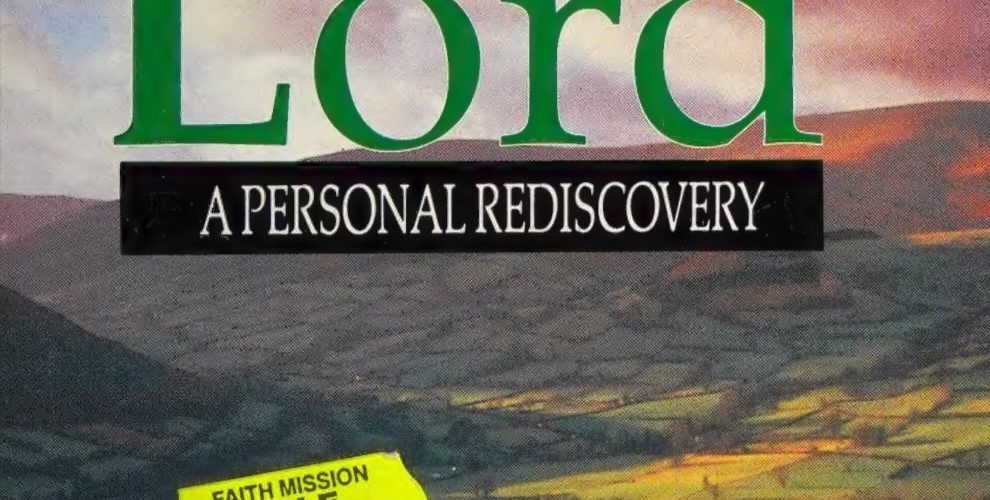“Some years ago, during a service at our church, my eyes wandered (I am sorry to say) to a banner that was propped up in the corner. It was to be part of a float that the children were preparing to enter in a local carnival, and on it was sewn in large cloth letters the words of Psalm 97:1: ‘The Lord is king; let the earth rejoice’.
“At the time, it seemed to me to be a very odd choice of text. My mind immediately went back to those many sermons through which I had sat so uncomfortably when the preacher would challenge us to consider whether Jesus was truly lord of our lives. We called him our saviour and friend, but the New Testament repeatedly emphasises that he is also lord. So, is he lord of every part of your life? And though I would slip down to sit as low as I could in my seat, the preacher’s steely eyes always seemed to search me out as he thundered on: is he lord of your bank balance? of your personal relationships? of your family life and of the way you carry on at work? Well yes, I used to think, as far as possible he is; but then again there is always room for improvement, and so as the preacher went on to speak of ‘those dark, hidden parts of your life, your thoughts, maybe, which you do not share with any one else’, I would admit to myself that I must pray about this and resolve to try harder in future. …
“Unless after all it was neither I nor the New Testament that was so wrong, but the preacher. Maybe, just maybe, he had not been telling us the whole story or had got it wrong somehow.”
So Hugh Williamson (that HGM Williamson) begins the introduction to his book Jesus is Lord. This is not the usual fare for Prof. Williamson, but is instead, as the subtitle states, “A personal rediscovery.” I had the great good fortune to attend an archaeology conference at the Lanier Theological Library in Houston at the end of January (more on that another time) and Prof. Williamson was present and presenting. We spent a fair amount of time over dinner and in the shuttle bus discussing church life, preaching, and religious reflection. For those who do not know, Prof. Williamson was the Regius Professor of Hebrew (now emeritus) at the University of Oxford and he had been in that post for just over a year when I arrived there as a student. Needless to say, I was a bit in awe as a young and aspiring scholar, so at coffee hour, I would often just sit and listen as he and other scholars smoked their pipes (something no longer allowed) while discuss matters Hebraic and prosaic.
Over the years I have gotten to know Prof. Williamson in more informal contexts. He is a humorous, gracious, and faithful man who kindly now allows me to address him as “Hugh.” To get a sense of his nature and character, be sure to read this interview in the Church Times from 2015, when he received his OBE. There I learned of his love of “model yachting” and that, when asked, would choose to be locked in a church with St. Jerome. “From what I can gather about his character, I am sure we should have the most almighty row, but I should love to talk with him about translating and commenting on the Old Testament.”
As we were chatting about religious reflection and writing about matters other than grammatical, Prof. Williamson mentioned that he had once published this slim volume outlining his own journey to (re)affirm his faith that “Jesus is Lord.” The publisher was long out of print, he told me, so I decided to poke around the corners of the internet. I found a PDF copy (just £1 from Faith Mission!) and promptly read through it. It is a very readable and enjoyable exploration of what it means to say that “Jesus is lord” and, in particular, where we should place the emphasis in the sentence. Is it “Jesus is lord” or “Jesus is lord“? Not to spoil the book (for this comes very early on), Williamson comes to the conclusion in the first stage of his study that “the emphasis is on the proclamation that Jesus, not death, is lord.” It is a work worth reading, so with Prof. Williamson’s approval I am making the PDF available here. I hope you will read, be edified, and enjoy it as much as I have.





One thought on ““Jesus is Lord,” by Hugh Williamson”